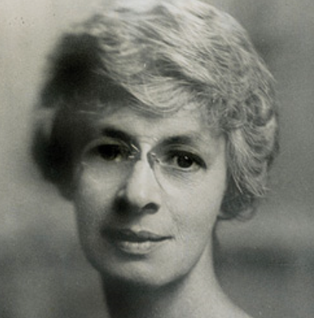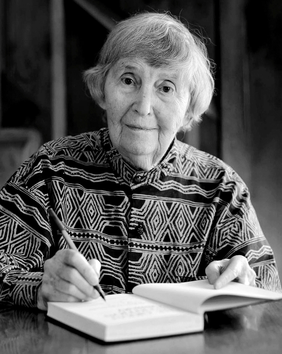Related Research Articles

Bruce Charles "Bill" Mollison was an Australian researcher, author, scientist, teacher and biologist. In 1981, he was awarded the Right Livelihood Award "for developing and promoting the theory and practice of permaculture".

Urban agriculture refers to various practices of cultivating, processing, and distributing food in urban areas. The term also applies to the area activities of animal husbandry, aquaculture, beekeeping, and horticulture in an urban context. Urban agriculture is distinguished from peri-urban agriculture, which takes place in rural areas at the edge of suburbs.

Cress, sometimes referred to as garden cress to distinguish it from similar plants also referred to as cress, is a rather fast-growing, edible herb.

Alice Louise Waters is an American chef, restaurateur, and author. In 1971, she opened Chez Panisse, a restaurant in Berkeley, California, famous for its role in creating the farm-to-table movement and for pioneering California cuisine.

Victory gardens, also called war gardens or food gardens for defense, were vegetable, fruit, and herb gardens planted at private residences and public parks in the United States, United Kingdom, Canada, Australia and Germany during World War I and World War II. In wartime, governments encouraged people to plant victory gardens not only to supplement their rations but also to boost morale. They were used along with rationing stamps and cards to reduce pressure on the food supply. Besides indirectly aiding the war effort, these gardens were also considered a civil "morale booster" in that gardeners could feel empowered by their contribution of labor and rewarded by the produce grown. This made victory gardens a part of daily life on the home front.

Teachers College, Columbia University (TC) is the graduate school of education of Columbia University, a private research university in New York City. Founded in 1887, Teachers College has served as one of the official Faculties and the Department of Education of Columbia University since 1898. It is the oldest and largest graduate school of education in the United States.

Michael Kevin Pollan is an American author and journalist, who is currently Professor of the Practice of Non-Fiction and the first Lewis K. Chan Arts Lecturer at Harvard University. Concurrently, he is the Knight Professor of Science and Environmental Journalism and the director of the Knight Program in Science and Environmental Journalism at the UC Berkeley Graduate School of Journalism where in 2020 he cofounded the UC Berkeley Center for the Science of Psychedelics, in which he leads the public-education program. Pollan is best known for his books that explore the socio-cultural impacts of food, such as The Botany of Desire and The Omnivore's Dilemma.

Marion Nestle is an American molecular biologist, nutritionist, and public health advocate. She is the Paulette Goddard Professor of Nutrition, Food Studies, and Public Health Emerita at New York University. Her research examines scientific and socioeconomic influences on food choice, obesity, and food safety, emphasizing the role of food marketing.

The Omnivore's Dilemma: A Natural History of Four Meals is a nonfiction book written by American author Michael Pollan published in 2006. As omnivores, humans have a variety of food choices. In the book, Pollan investigates the environmental and animal welfare effects of various food choices. He suggests that, prior to modern food preservation and transportation technologies, the dilemmas caused by these options were resolved primarily by cultural influences.
Michael Ableman is an American-Canadian author, organic farmer, educator, and advocate for sustainable agriculture. Michael has been farming organically since the early 1970s and is considered one of the pioneers of the organic farming and urban agriculture movements. He is a frequent lecturer to audiences all over the world and the winner of numerous awards for his work. Ableman is the author of four trade published books: From the Good Earth: A celebration of growing food around the world; On Good Land: The autobiography of an urban farm; Fields Of Plenty; A farmer's journey in search of real food and the people who grow it, and most recently Street Farm; Growing Food, Jobs, and Hope on the Urban Frontier. Michael Ableman is the founder of the Center for Urban Agriculture at Fairview Gardens in Goleta, California where he farmed for 20 years; co-founder and director of Sole Food Street Farms and the charity Cultivate Canada in Vancouver, British Columbia; and founder and director of the Center for Arts, Ecology and Agriculture based at his family home and farm on Salt Spring Island.

Elinor Teresa Newman is an American former child actress who performed under the name of Nell Potts. She is an environmentalist, biologist, and a prominent supporter of sustainable agriculture, who became an entrepreneur when she founded an organic food and pet food production company, Newman's Own Organics.

The White House has had multiple vegetable gardens since its completion in 1800. Eleanor Roosevelt, Hillary Clinton and Michelle Obama all have had their own versions of vegetable gardens. Roosevelt planted the White House victory garden during World War II to promote the use of victory gardens by American citizens in a time of possible food scarcity. Hillary Clinton had a vegetable garden constructed on the roof of the White House. On March 20, 2009, Michelle Obama broke ground on the largest and most expansive vegetable garden to date on the White House lawn.
Alan Gussow was an American artist, teacher, author and conservationist devoted to and inspired by the natural environment.

Mary Swartz Rose was an American laboratory scientist and educator in the fields of nutrition and dietetics.
Heritage Radio Network is an independent 501(c)3 non-profit covering the world of food, drink and agriculture. The member-supported radio station has more than one million monthly listeners in over 200 countries.

A school garden is an area designated for students to learn how to cultivate flowers and vegetable gardens in their school. They are commonly established to improve students' health, social development, and academic achievement.

Johnnie Hines Watts Prothro was an American nutritionist in the Southern United States whose career spanned the eras of racial segregation, Jim Crow laws, and the passing of the Civil Rights Act and Voting Rights Act. She was one of the first African American nutritionists and food scientists.

Daisy Yen Wu was the first Chinese woman engaged as an academic researcher in biochemistry and nutrition. Born into a wealthy industrial family in Shanghai, from a young age she was tutored in English and encouraged to study. She graduated from Nanjing Jinling Women's University in 1921 and then studied in the United States, graduating with a master's degree in biochemistry from Teachers College, Columbia University in 1923. Returning to China, she became an assistant professor at Peking Union Medical College between 1923 and her marriage at the end of 1924 to Hsien Wu. Collaborating with him, she conducted research on proteins and studied nutrition. After their marriage she continued to assist in the research conducted by Wu as an unpaid staff member until 1928. She and her husband collaborated in writing the first Chinese textbook on nutrition, which remained in print through the 1990s.

Beatrice Josephine Trum Hunter was an American natural foods campaigner and writer.
Eric Toensmeier is an author of several books focused on climate change, biodiversity, and nutrition. He is also a lecturer at Yale University and a Senior Biosequestration Fellow at Project Drawdown.
References
- 1 2 Raver, Anne (August 18, 2010). "Out of the Loss of a Garden, Another Life Lesson". The New York Times.
- 1 2 3 4 5 6 "Joan Gussow, Teacher of Teachers | Edible Manhattan". 7 March 2010. Retrieved 2015-10-03.
- ↑ Raver, Anne (2010-08-18). "Joan Dye Gussow's New Garden". The New York Times. ISSN 0362-4331 . Retrieved 2015-10-03.
- ↑ "Organic | Joan Dye Gussow, Francesco Mastalia, Gail Buckland, Zakary Pelaccio, Jean-Paul Courtens, Ken Greene | Art and Food Series Event". www.nypl.org. Retrieved 2015-10-03.
- ↑ "Rockland Farm Alliance: Officers & Board of Directors" . Retrieved 3 October 2015.
- ↑ "Teachers College - Columbia University: Faculty". Tc.columbia.edu. Retrieved 2011-03-30.
- ↑ "Inaugural Lecture of Joan Dye Gussow as Mary Swartz Rose Professor of Nutrition and Education" (PDF). May 3, 1988. Retrieved 17 November 2015.
- ↑ "Growing, Older by Joan Dye Gussow". Chelsea Green. 2010-10-14. Retrieved 2011-03-30.
- ↑ "JoanGussow.com | Joan's Garden". Joansgarden.org. 2011-03-17. Retrieved 2011-03-30.